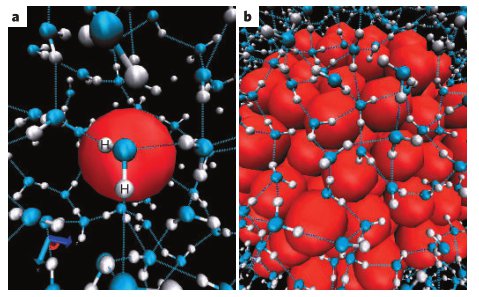
Proteins are essential to human life. They are involved in almost every bodily process, from digestion to movement. However, when proteins lose their natural conformation, they can no longer carry out their normal functions. This is known as denaturation, and it can lead to a variety of health problems, including Parkinson’s disease, Alzheimer’s disease, and blindness. By having a better understanding of denatured proteins, we may be able to develop better treatments for these illnesses.
What Is a Denatured Protein?
Proteins are made up of long chains of amino acids. The specific sequence of these amino acids determines the protein’s three-dimensional structure, which is known as its native conformation. This structure is crucial to the protein’s function. For example, the protein hemoglobin has a specific structure that allows it to bind to oxygen molecules. If the structure of hemoglobin changes, it can no longer carry out this function.
There are a number of factors that can cause proteins to lose their native conformation, including heat, pH changes, and exposure to certain chemicals. When this happens, the protein is said to be denatured. Denatured proteins can no longer carry out their normal functions, leading to serious health problems.
What Are the Health Consequences of Denatured Proteins?
Denatured proteins have been linked to a number of serious diseases because they disrupt normal cellular processes. Some of the most common diseases associated with protein denaturation include:
- Parkinson’s disease. Parkinson’s disease is a neurodegenerative disorder that is characterized by the death of dopamine-producing cells in the brain. A number of studies have shown that denatured proteins are present in the brains of patients with Parkinson’s disease. The process begins when misfolded proteins, such as alpha-synuclein, accumulate in the cells. This accumulation leads to the death of the cell and the loss of dopamine production.
- Alzheimer’s disease. Alzheimer’s disease is another neurodegenerative disorder, and it is the most common form of dementia. Similar to Parkinson’s disease, Alzheimer’s is characterized by the accumulation of misfolded proteins in the brain. In this case, the protein is amyloid beta. The accumulation of amyloid beta leads to the death of nerve cells and the loss of cognitive function.
- Blindness. Denatured proteins have also been linked to blindness. One of the most common causes of blindness, age-related macular degeneration, is caused by the accumulation of denatured proteins in the eye. These proteins, known as drusen, accumulate in the macula, the part of the eye responsible for central vision. The accumulation of drusen leads to the death of cells in the macula and the loss of central vision.
What Is the Future of Research on Denatured Proteins?
Currently, there is no cure for the diseases caused by denatured proteins. However, researchers are working on developing treatments that may help to slow the progression of these diseases or to manage the symptoms better. If successful, it could lead to a major breakthrough in the treatment of the issues denatured proteins can cause and transform the lives of millions of people. If successful, it could lead to a major breakthrough in the treatment of the issues denatured proteins can cause and transform the lives of millions of people.








